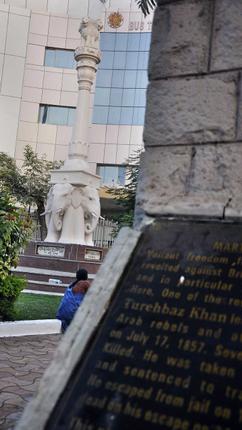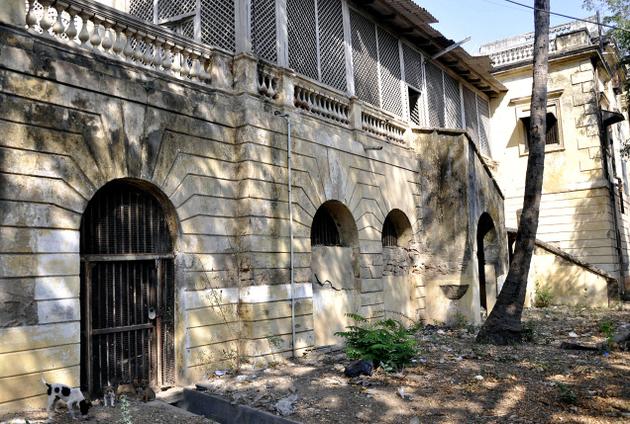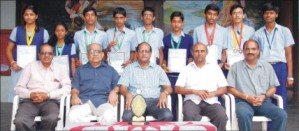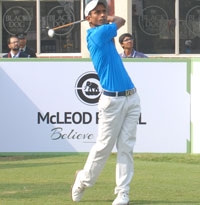Over a cup of tea
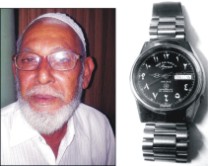
by Dr. K. Javeed Nayeem
Some things touch people’s heart strings in a very strange way and the reason for this is not very easily understood or explained. My last week’s article about HMT watches seems to have stirred people’s sense of nostalgia far beyond my expectations. This is evident by the spate of responses I have been getting over the whole of the week. The emotional impact of the closure of HMT’s watch division on people’s minds can be gauged by the many letters that have appeared in Star of Mysore too ever since the news was published last Friday. But some sad stories too can have happy endings as you will see.
Last evening as I was seeing off the last of my patients for the day, I found a familiar figure walking into my consulting room with a smile. It was Baba Sab, my former neighbour of many years who had sold his house a couple of years ago and moved out to another locality. After exchanging pleasantries for a few moments he complimented me on my writing and said that he was particularly touched by my article on HMT watches. He then removed the wrist watch he was wearing and placed it on my table and said, “This is a watch about which y ou have made a mention in your last article and I have one with me.”
The piece that lay before me was a West End Sowar Prima, an automatic mechanical watch with a black dial and Eastern Arabic numerals. (Incidentally, and perhaps a little interestingly, Arabic numerals are the numerals we use while writing in English while Eastern Arabic numerals are the ones in the actual Arabic script as seen in the picture). I told him that I had indeed mentioned it by name in my article and I knew all about it because my father and grandfather and all my uncles had always worn West End watches. It was a sort of a family tradition and in the good old days, a good watch only meant a West End.
He then surprised me by saying, “I have been wearing it for some years and now I want you to have it because you are one person who knows what it is worth.” I immediately protested and refused his offer to which he said, “I have worn it long enough. Now I want you to accept it as a token of my affection and regard for you. I have always admired your writing and I will be happy if you accept it from me. Please do not refuse my humble offer.” Perplexed, I did not know what to do.
Here was a simple and humble man who thought so highly about me and with his strange and most unexpected gesture of magnanimity he had put me in a very delicate situation if not a real fix. He was indeed an unusual kind of man. When he first thought of selling his house he had come into my consulting room once before and offered it to me at a price considerably lower than the best offer he had received. He very rightly told me that Islam teaches that a good Muslim should give first priority to the welfare and happiness of his or her neighbours in all matters. Only after I reassured him that I had no intention of buying his house did he proceed to sell it to its present owner. And, he did sell it for a sum much higher than for what he had offered it to me.
Now, refusing his gift would have broken his heart and accepting it would have made my own heart heavy. After a few uneasy moments of confused introspection I decided to let his heart have its way and picked up the watch with an uneasy smile. He felt visibly relieved and thanking me profusely for accepting it he quickly left the room leaving me in a daze. My friends are not wrong when they say that interesting things happen to me which provide me interesting writing material!
West End watches came into production in the year 1886 in Switzerland and they were named after the upmarket district of the same name in London. Known for their ruggedness and durability, they quickly became a household name in India and it appears when the Indian Cavalry contingent was dispatched to fight in Mesopotamia during the First World War, the soldiers were provided with West End watches. That is when the model ‘Sowar’ was introduced after the Sowars or Lancers of the cavalry regiment.
We still have my father’s West End Sowar Prima as a family heirloom, along with its original box, user manual, bill and hexagonal spanner. Very oddly, perhaps because they were mechanical watches, every West End watch used to come with a spanner to enable its owner to open its back and make the movement go slow or fast as required to keep the correct time! My friend Ulliada Arun, perhaps has the oldest West End watch that I know of in perfect working condition. It is from the year 1902 and it still keeps the right time and my friend wears it all the time!
A lesson in harmony: Last Wednesday’s SOM had a review by Dr. Manik Bengeri, about the Kannada play ‘Raavi Nadeeya Dandeyelli’ which was recently staged at the Vanaranga theatre of Kalamandira. My wife and I had an occasion to see it at the urging of my friend Sri. K. R. Mohan, a former senior manager of the Syndicate Bank, who had also written a small introductory piece about it in SOM.
Although adding anything to the already very well written piece certainly seems superfluous, what impressed me very much apart from the excellent theme of the play was the portrayal of the way goodness in human nature prevails over baser instincts. The correct presentation of what the Holy Koran says about how we should live in absolute peace and harmony with all those around us, forgetting our castes and creeds, needs to be complimented.
‘Parivarthana’ which presented the play and all those who are responsible for it in some way or the other deserve not only to be congratulated for what they have done but also encouraged to continue to present it before much larger audiences across the length and breadth of the country. Plays like this that can promote communal harmony at a time when it seems to be under great stress should be showcased before the younger generation in schools and colleges and this can be done at a surprisingly modest cost. Therefore managements, parents’ associations and even philanthropic individuals, if not institutions, can do this job if they mind. Do think about it. It certainly is worth a thought.
The play made me recollect an incident that I once heard from the mother of my friend, Mallikarjun Nisty from the turbulent time of partition. It tells a heart touching story of human goodness from a time when goodness seemed to be extinct. It appears a Hindu man and his family from the Pakistan side of the border who were leaving for the Indian side was seated in a crowded train with their belongings. As the train was about to leave, their Muslim neighbour’s wife who was also a very close friend of the man’s wife, rushed into the compartment with an angry expression and began rummaging through their bags, ostensibly to check what they were taking away with them.
Her job done, she left the shell-shocked family but not without taunting and cursing all those who were going away to the other side. As the train steamed out of the station, the man’s wife who was now in tears at her former friend’s unbelievably cruel behaviour put her hand into her bag to find her handkerchief. To her amazement, she found a wad of currency notes with a small note from her friend that said, “I am sorry about the way I behaved. But there was simply no other way I could help you under the watchful eyes of the hostile mobs around. Do keep in touch with us if possible. May God protect you and your family.”
e-mail: kjnmysore@rediffmail.com
source: http://www.starofmysore.com / Star of Mysore / Home> Feature Articles / September 19th, 2014



